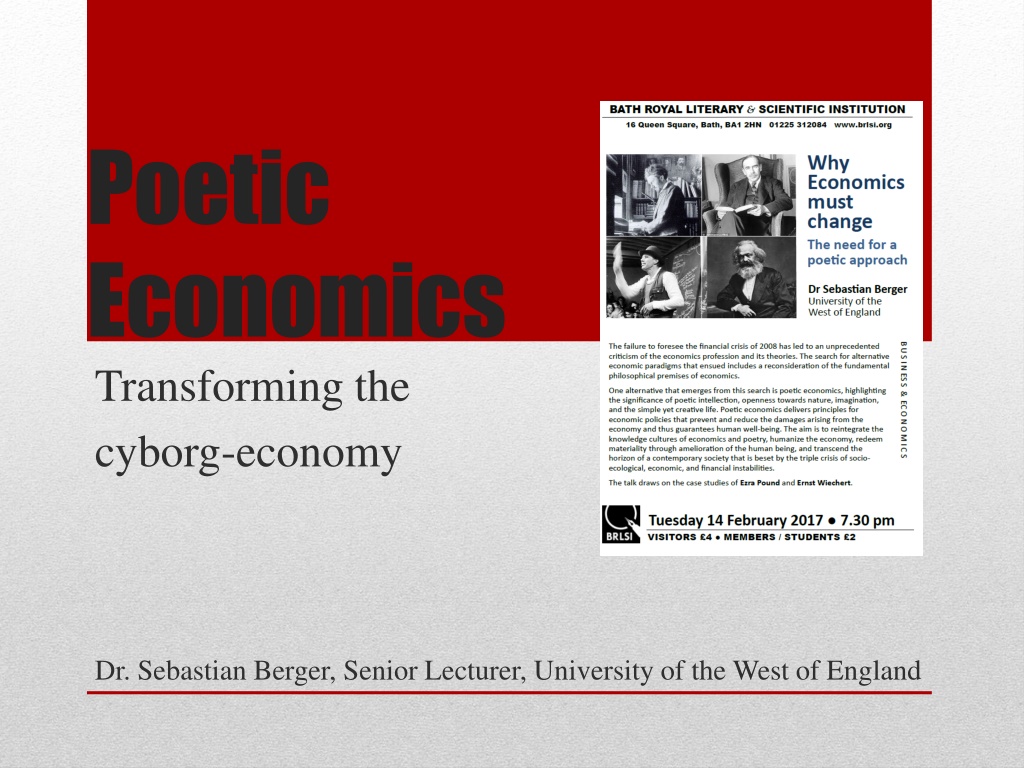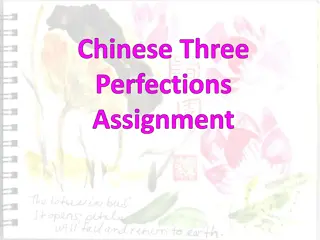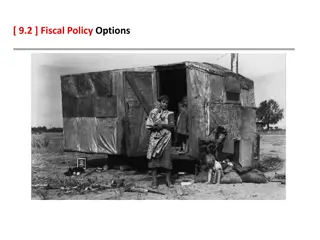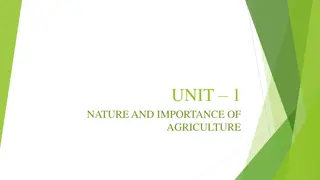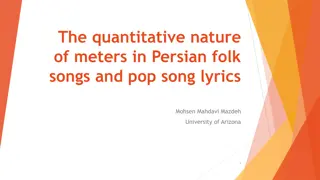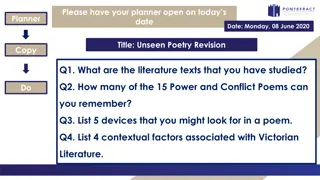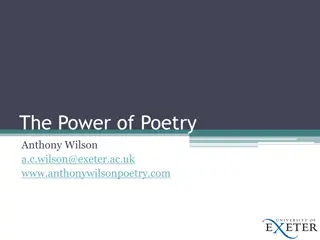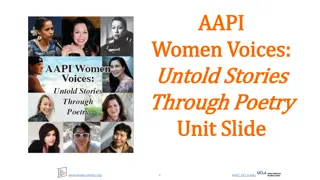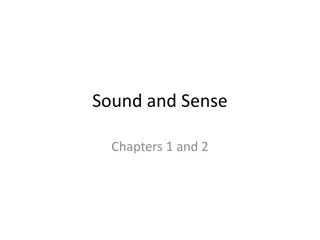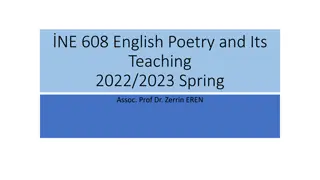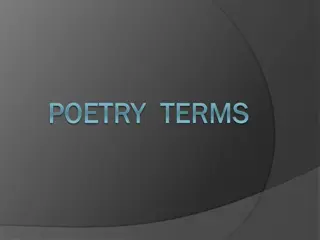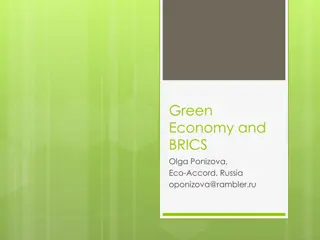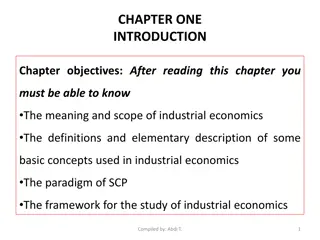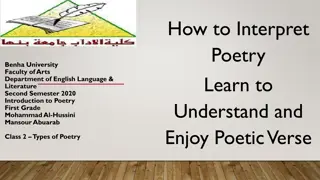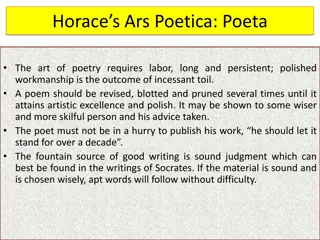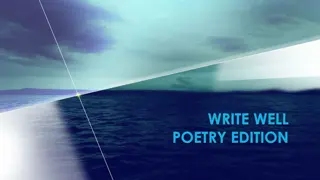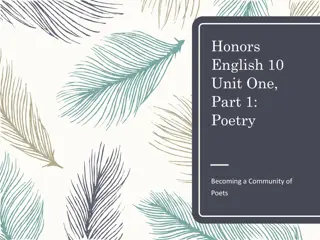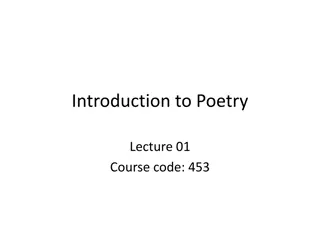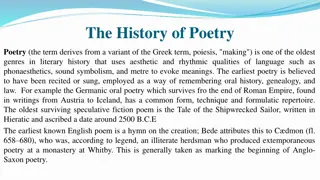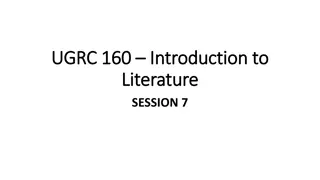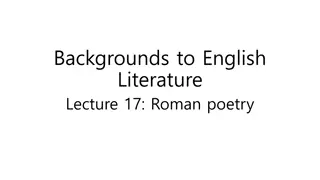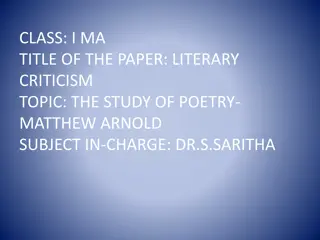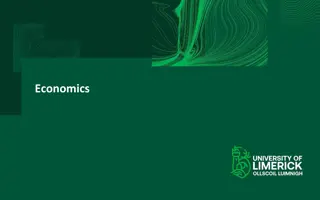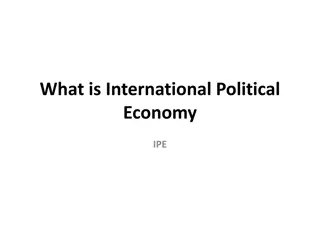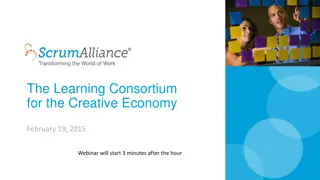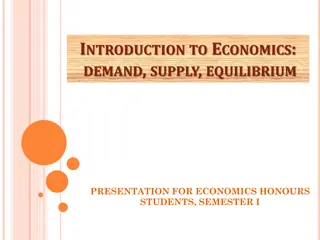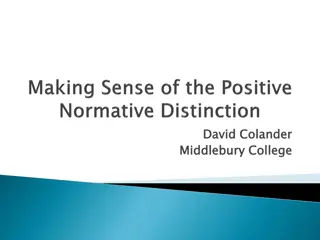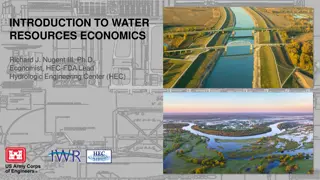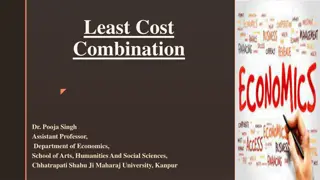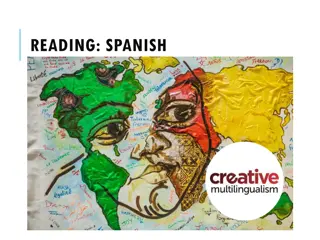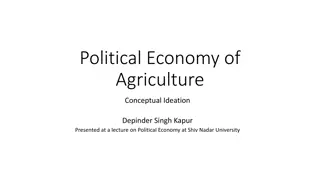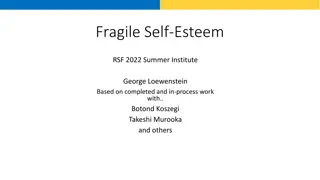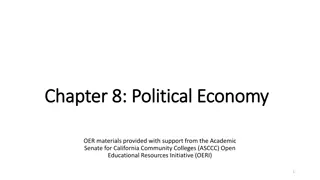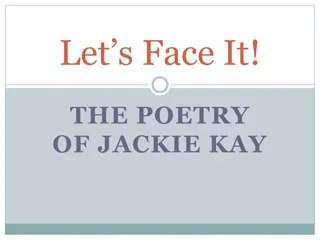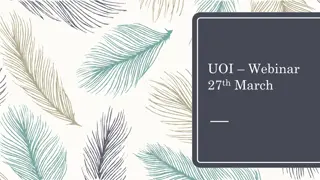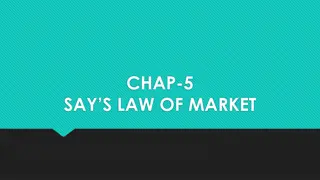Exploring the Interplay of Poetry and Economics in the Cyborg Economy
Delve into the fascinating relationship between poetry and economics as Dr. Sebastian Berger presents the concept of poetic economics, redefining traditional views and exploring how these seemingly disparate fields intertwine. From historical perspectives to modern critiques, this exploration challenges conventional economic paradigms and offers a fresh lens through which to view our global economy.
Download Presentation

Please find below an Image/Link to download the presentation.
The content on the website is provided AS IS for your information and personal use only. It may not be sold, licensed, or shared on other websites without obtaining consent from the author. Download presentation by click this link. If you encounter any issues during the download, it is possible that the publisher has removed the file from their server.
E N D
Presentation Transcript
Poetic Economics Transforming the cyborg-economy Dr. Sebastian Berger, Senior Lecturer, University of the West of England
1. What is the relationship between poetry and economics? They are opposed! But are they really strange bed-fellows? 2. What is economics and what could it be? Cyborg economics Postmodern economics 3. In what sense do we speak of poetry? 4. What is poetic economics and the poetic economy? Re-root economics in poetry Philosophy of economics and cultural economics Overview
Confucius: Wen as arts power to transform human nature towards virtue (stimulates mind, self-contemplation, sensibility, restrains resentment) Kant: artistic genius higher than scientific genius Goethe: poetry and science are related, use poetic intellection to create humane-natural theories and cultivate nature Nietzsche: poet, priest, philosopher as highest form of humanity: hallmark of the genuine human Sloterdijk: art and experience of beauty as anthropo-technics following a call from above Heidegger: poetry as ground of truth Gadamer: experience of art as witness to truth event Pierce: poetry as highest form of truth Dewey: experience of art has beneficial effects for science Art, Poetry, Science
art = capital artist as a socially productive force Joseph Beuys
Marx initially planned career as full time poet Mill turned to poetic intellection to balance rationality Edgeworth was influenced by literary tradition in economics Keynes was inspired by Edgeworth; member of Bloomsberry (Virginia Wolf etc.) Hayek cites romantic poet Novalis in his Road to Serfdom Kapp s pioneering ecological economics was inspired by his teacher, the poet Wiechert Postmodern Economics, Cultural Economics Economics
What is happening in the world of economics? What are the problems with economics? What is economics? What should it be? Economics
Recent critiques of economics inability to foresee the 2008 financial crisis fails to teach relevant skills (critical thinking, creativity, imagination) Recent attempts to change economics (SBSE; CORE; student movements; heterodox economics) But so far nothing of substance has changed Critique of CORE & SBSE (UWE Working Paper Series) Recent Critique of Economics
Economics is a science which studies human behavior as a relationship between ends and scarce means which have alternative uses (Lionel Robbins, 1932) Standard Definition of (Neoclassical) Economics
Neoclassical economics as faade for the public to pretend economics is a rigorous and sound science Imitates trends in natural science (physics, biology experimental laboratory science, artificial intelligence) Fragmented body of knowledge (no foundation, no integration with other science) Void at the core is hidden Mathematical knowledge Mechanistic images (economy as machine) Commercialized (bought and sold) Cyborg Economics
Decreasing quality of research: inability to identify qualitative structural changes that lead to crises (2008 Financial Crisis!!!) Misallocation of intellectual capital: pursuit of private gain instead of public purpose Lack of training in deliberating socio-ecological goals Lack of nurturing human wisdom (mindful of contradictions in knowledge) and loss of care of Self Loss of other forms of knowledge/reasoning: experiential/ practical, philosophy, history, hermeneutics, poetics Consequences
Deformed realization of reasoning in history Low level of self-reflection Suppression of heterodox paradigms (Marx, Keynes, Veblen) Lack of study of factors that inhibit, distort, prevent dialogue Economics functions like a mechanism of exclusion like Latin in the pre-Reform era that disempowers the public from participating in the debate Consequences
Understanding that economists tell stories much like poets and novelists Bring economics back into the conversation of the rest of society Heal fragmentation of knowledge cultures Tolerance, higher level of self-reflection Post-Modernism in Economics
Discourse analysis: general patterns in types of texts, such as problem-solution, general-particular patters Genre analysis: how the communicative purpose of the writer and the conventions of the discourse community are reflected in the structure of the argument For example, Klamer (1984) analyses debates between economics aggressive approach to argument; criticism is met with annoyance and dismissed abruptly; detachment is not common among economists Applied Linguistics
Advocacy of realities (rhetoric) displaces demonstration and proof New Conversationalists : analyse the persuasion, arrogance and deceit of rhetoric of economists Meta-analysis of economics reveals: economists are really rhetoricians Knowledge is outcome of negotiation in community No secure foundation of knowledge Rhetorical Analysis
Rejection of literalism means that economic texts can be analyzed using the tools of literary theory Hero images influence theory formation Marx: proletariat Neoclassical economics: Max U. Theory formation is driven by vortices of images and metaphors cycling back and forth between natural and social sciences Example: equilibrium; cyborg Literary Theory
Texts and actions have multiple meanings Economists engage in interpretation: economy and economic behaviour as text Conflict about nature and aim of interpretation For example, Dilthey/Schleiermacher focus on the role of the author, psychological/historical factors that influence his mode of understanding Style is rooted in author s personal/secret mythology (eg. Edgeworth picked expressions from artists and poets: Pope s Essay on Man; Milton s Paradise Lost: the poetic sentence ) Hermeneutics
Post-modern economics focuses mainly on linguistics, literary theory, rhetoric, and hermeneutics... but what is the role of poetry?
Language is world making, enables the existence of history The highest good: an event that actualizes the highest potential of human being that is founded on language How does language happen? Poetry is founding via the word and in the word Poetry founds that which remains the steady, the simple, the unchanging, that which carries existence in its entirety and permeates it and needs to be brought to light Poetry is verbal founding of Being Being and the essence of beings cannot be calculated or derived from existing things but have to be created freely, posited and donated Free donation = foundation (Stiftung) The existence of human beings is thus placed into a solid relation and on a foundation Heidegger: language & poetry
Canto 45: No picture is made to endure nor to live with but it is made to sell and sell quickly CONTRA NATURAM Pound: The Cantos as an epic that frees humankind from the hell of avarice to the light not of sun (Paradise in Earth) Fought against fragmentation of human being, scarcity economists and the control of society by bankers My poetry and econ are the same Economics of generosity: money is for getting food and clothing justly distributed, especially to poets and artists Place for art/literature in economics Economy of beauty to redeem materiality Ezra Pound
Poem 60thbirthday: With my life it was not much Too restless was this heart as such But who of us made a better offering Than rescue from deepest suffering ? Fought evil and the destruction of the image of man Causes: cash nexus, contempt for the heart and idolatry of rationality Move hearts, restore pure humanitas, the unshakable , the God-child without name , the ethical human being Love (for all suffering creatures) is the greatest among them Simple life; quite performance of meaningful daily duties Form islands of solace Government by an elite aristocracy of the good Ernst Wiechert
Humans are thrown into a world as beings who understand and interpret If we want to understand human being then we need to understand understanding Understanding is an event/happening Work of art is a new event of being as it belongs so closely to that to which it is related that it enriches its being Gadamer: Art Experience
Works of art are events that involve interpreters Art is only realized fully when presented and interpreted Does understanding thus belong to the meaning of art and texts just as being heard belongs to the meaning of music? Understanding must be conceived as a part of the process of the coming into being of meaning, in which the significance of all statements - those of art and those of everything else that has been transmitted - is formed and made complete Gadamer: Art Experience
Engages emotions (beauty, enjoyment, dignity) Balancing out logic/rationality Provides more complete criteria for judging the desirability of material goods (prevents moral and economic stagnation) Enhances the subtlety of perception of self and society and humanizes our convictions, which is a crucial component for scientific inquiry Dewey: Experience of Art
sensitive to complex situations do justice to all facts entertain competing hypotheses responsive to unique or different situations patience and persistence to ensure the problem has been identified correctly possesses the creative imagination to envision new possibilities recognize a bias toward objectivity and the ability to discount one s own prejudices courage to revise one s beliefs in light of new experience Dewey: Art and Experience
The construction of intellectual signs requires an artist s mentality Construction begins with an artist s struggle over form and content The scientist sculpts a meaningful form from a formless body of information A beautiful theory is a sign that simultaneously signifies the surrender of our senses to and the capture by our intellects of an experience Pierce on Esthetics in Science
Forming novel hypothesis: search, guess, play stab into unknown based on one s feel for the situation sensitivity of touch, personal intuition sympathetic understanding of experience consummate intellectual fantasy Pierce: Scientific Creativity
Transform the cyborg economy Care for the Self, nurturing of human wisdom, return to philosophy and history, deliberation of socio-ecological goals Foster free, critical, courageous, ethical, creative, well-rounded, balanced minds Radical pluralism in economics, study of all traditions Study of poet economists Foster a deeper understanding of the tripple crisis: exploding inequality and poverty, financial instability, environmental catastrophe Poetic Economics
Redeems materiality Understanding and ameliorating human being Art of being Simple life approach frees time for higher pursuits Prevent damages via social controls of the economy (pollution, injuries, poverty, unemployment, over- work) Basic income guarantee or employer of last resort Links to discourses on well-being and sustainability Poetic Economy
Does not say how such a poetic economy can be brought about in the age of the cyborg economy: social and political action or individual efforts? Need for sociology: how social processes enable or prevent the creation of a poetic economy Problems
